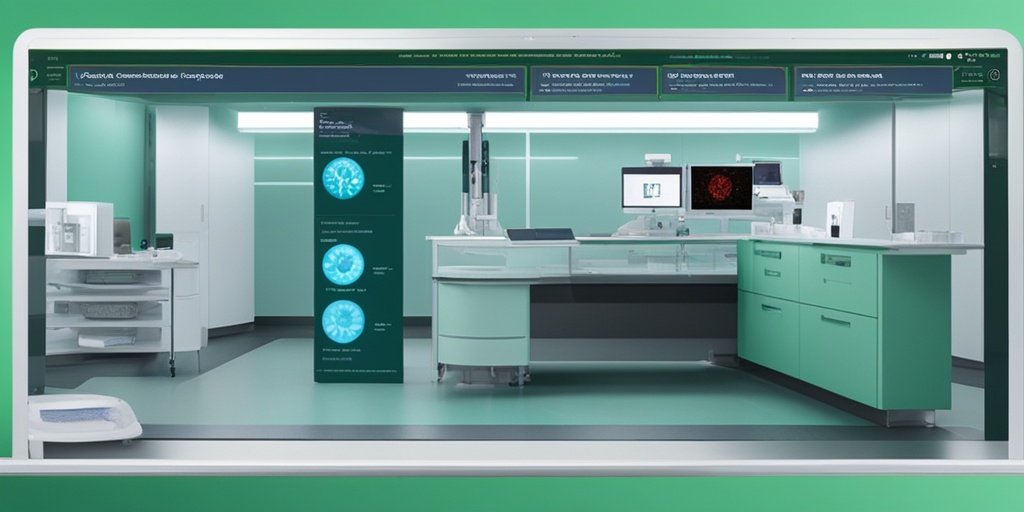⚡ Quick Summary
A recent study evaluated a non-invasive multi-cancer screening method using trained detection canines and artificial intelligence, demonstrating an impressive sensitivity of 93.9% and specificity of 94.3% in detecting breast, lung, prostate, and colorectal cancers from breath samples.
🔍 Key Details
- 📊 Participants: 1,386 individuals (59.7% males, median age 56.0 years)
- 🧬 Cancer types detected: Breast, lung, prostate, colorectal
- ⚙️ Technology used: Bio-hybrid platform combining trained canines and AI
- 🏆 Performance metrics: Sensitivity 93.9%, Specificity 94.3%
🔑 Key Takeaways
- 🌬️ Breath analysis offers a promising non-invasive method for cancer screening.
- 🐕 Trained detection canines play a crucial role in identifying cancerous samples.
- 🤖 AI tools enhance the accuracy of cancer detection.
- 📈 Early detection of cancer (stages 0-2) achieved a sensitivity of 94.8%.
- 💡 High sensitivity was observed across all cancer types: breast (95.0%), lung (95.0%), colorectal (90.0%), prostate (93.0%).
- 🔍 Additional tumors not specifically trained for detection were identified with an 81.8% sensitivity.
- 📅 Study conducted in a double-blind manner to ensure reliability.
- 📖 Published in: Scientific Reports, DOI: 10.1038/s41598-024-79383-2.

📚 Background
Cancer remains one of the leading causes of mortality worldwide, necessitating the development of effective screening methods. Traditional screening techniques often involve invasive procedures, which can be uncomfortable and anxiety-inducing for patients. The integration of trained detection canines and artificial intelligence presents a novel approach to cancer screening, potentially transforming how we detect malignancies at an early stage.
🗒️ Study
This prospective double-blind study involved the collection of breath samples from 1,386 participants who were undergoing cancer screening or biopsy. The samples were analyzed using a bio-hybrid platform that combined the olfactory capabilities of trained canines with advanced AI tools, aiming to evaluate the effectiveness of this non-invasive method in detecting multiple cancer types.
📈 Results
The results were promising, with an overall sensitivity of 93.9% and specificity of 94.3%. Among the 338 positive samples, 261 (77.2%) were confirmed to have one of the four targeted cancer types. The sensitivity for early-stage cancer detection was particularly noteworthy at 94.8%, indicating the platform’s potential for timely intervention.
🌍 Impact and Implications
The implications of this study are significant. By demonstrating the effectiveness of a non-invasive screening method, we could see a shift in how cancer is detected and managed. This approach not only reduces the discomfort associated with traditional screening methods but also enhances the likelihood of early detection, which is crucial for improving patient outcomes. The combination of canine detection and AI could pave the way for broader applications in cancer diagnostics and beyond.
🔮 Conclusion
This study highlights the remarkable potential of combining trained detection canines with artificial intelligence for cancer screening. With high sensitivity and specificity, this bio-hybrid platform could revolutionize early cancer detection, ultimately leading to better patient care and outcomes. Continued research in this area is essential to further validate and refine these innovative screening methods.
💬 Your comments
What are your thoughts on this innovative approach to cancer screening? We would love to hear your opinions! 💬 Share your insights in the comments below or connect with us on social media:
Non-invasive multiple cancer screening using trained detection canines and artificial intelligence: a prospective double-blind study.
Abstract
The specificity and sensitivity of a simple non-invasive multi-cancer screening method in detecting breast, lung, prostate, and colorectal cancer in breath samples were evaluated in a double-blind study. Breath samples of 1386 participants (59.7% males, median age 56.0 years) who underwent screening for cancer using gold-standard screening methods, or a biopsy for a suspected malignancy were collected. The samples were analyzed using a bio-hybrid platform comprising trained detection canines and artificial intelligence tools. According to cancer screening/biopsy results, 1048 (75.6%) were negative for cancer and 338 (24.4%) were positive. Among the 338 positive samples, 261 (77.2%) were positive for one of the four cancer types that the bio-hybrid platform was trained to detect, with an overall sensitivity and specificity of 93.9% (95% confidence interval [CI] 90.3-96.2%) and 94.3% (95% CI 92.7%-95.5%), respectively. The sensitivity of each cancer type was similar; breast: 95.0% (95% CI 87.8-98.0%), lung: 95.0% (95% CI 87.8-98.0%), colorectal: 90.0% (95% CI 74.4-96.5%), prostate: 93.0% (95% CI 84.6-97.0%). The sensitivity of 14 other malignant tumors that the bio-hybrid platform was not trained to detect, but identified, was 81.8% (95% CI 71.8%-88.8%). Early cancer (0-2) detection sensitivity was 94.8% (95% CI 91.0%-97.1%). This bio-hybrid multi-cancer screening platform demonstrated high sensitivity and specificity and enables early-stage cancer detection.
Author: [‘Half E’, ‘Ovcharenko A’, ‘Shmuel R’, ‘Furman-Assaf S’, ‘Avdalimov M’, ‘Rabinowicz A’, ‘Arber N’]
Journal: Sci Rep
Citation: Half E, et al. Non-invasive multiple cancer screening using trained detection canines and artificial intelligence: a prospective double-blind study. Non-invasive multiple cancer screening using trained detection canines and artificial intelligence: a prospective double-blind study. 2024; 14:28204. doi: 10.1038/s41598-024-79383-2